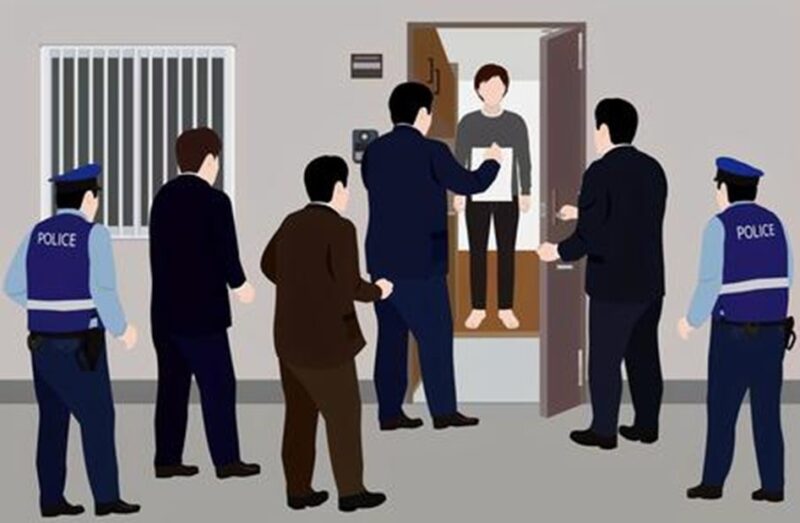A Quick Guide on Search and Seizure in Trinidad and Tobago
The Trinidad and Tobago Police Service has the authority to search and seize items of citizens but there are rules relative to same. Let’s discuss the law governing search and seizure.
1. Can a police officer search my person?
Once arrested, a police officer may search a person if it is believed that he possesses a weapon which may be used to escape, or he is in possession of material evidence.
2. Can a police officer search my vehicle?
Under Section 23(1) of the Dangerous Drugs Act, if an officer reasonably suspects any dangerous drug is in your vehicle, they may search that vehicle for the said dangerous drug. Similarly, under Section 29(1) of the Firearms Act, a police officer, in uniform, may stop and search any vehicle for firearms and ammunition.

3. Can a police officer search my electronic devices and/or private online conversations?
According to Section 8(1) of the Interception of Communications Act, the Commissioner of Police has the ability to apply for a warrant to monitor, view, or record communications passing over a telecommunications network without the knowledge of the individuals involved. Additionally, under Section 5(1) of the Administration of Justice (Indictable Proceedings) Act No. 20 of 2011, a Master is empowered to issue a warrant for the search of a computer or electronic device.

4. Can a police officer search my home without a warrant?
A police officer’s authority to enter a private premises without a warrant is constrained to specific circumstances. Such entry is permissible only: (1) to prevent a murder; (2) to arrest an offender who has sought refuge in the premises after being pursued; (3) to prevent the commission of an offence; and (4) to pursue an offender fleeing from an officer. Beyond these scenarios, a search warrant must be obtained.
5. How is a search warrant obtained?
The power to issue search warrants is vested in the judicial authority, acting as a safeguard against potential abuses of state power. A Master can issue warrants for indictable offences under Section 5 of the Administration of Justice (Indictable Proceedings) Act, while Magistrates or Justices of the Peace may issue warrants for summary offences under Section 41 of the Summary Courts Act. Before issuing a search warrant, the judicial officer must be satisfied, under oath, that there are reasonable grounds justifying the issuance of the warrant.
6. Who can execute a search warrant?
A warrant may empower a named constable or any constable. If a particular constable is named, only that constable can execute the warrant.
7. When can a search warrant be executed?
A search warrant may be executed on any day at any time.
8. Can the police break open my door?
A door may be broken if an initial demand for entry is refused.
9. Do the police need to show me the warrant?
The police should provide a copy to the occupier for inspection. The failure to provide the copy of a search warrant may be unlawful. However, not producing the warrant may be justified in circumstances where the search would be frustrated.
10. Who must be present when the warrant is executed?
The occupier or some other person in charge of the premises. If no one is present who appears to be in charge, a copy of the warrant must be left in a prominent place.
11. There is a misdescription in the warrant, is it invalid?
Not every defect or misdescription would render a warrant invalid. The key consideration is whether there is sufficient clarity to indicate the premises which was the subject of the warrant.
12. What can the police seize?
Police officers may seize any items reasonably believed to be material evidence in the crime for which a person is arrested or for which they entered the premises. They can also seize items implicating a person in another crime.
13. How long can the police retain items seized?
Seized property can be retained as long as needed for prosecuting a crime. However, if the property is not related to any charge, there is no general authority to retain it. Officers must justify continued retention if they wish to detain the property further.
14. Can I challenge the validity of a warrant?
Individuals can seek judicial review to challenge the validity of the warrant. Additionally, civil claims for malicious procurement of a search warrant or trespass provide recourse for individuals who believe the warrant was obtained unlawfully or executed improperly. If someone’s property is unlawfully retained, they may pursue redress through a claim for detinue to recover their belongings.
In conclusion, understanding the scope of the police’s powers for search and seizure is important for every citizen in Trinidad and Tobago.
Submitted by:
Shuzvon Ramdass
Public Defender Entry
Public Defenders’ Department
Legal Aid and Advisory Authority,
23 Stanmore Avenue, Port of Spain.
Contact: 638-5222
Email: [email protected]
Published in The Trinidad Guardian on Saturday 27th April, 2024

